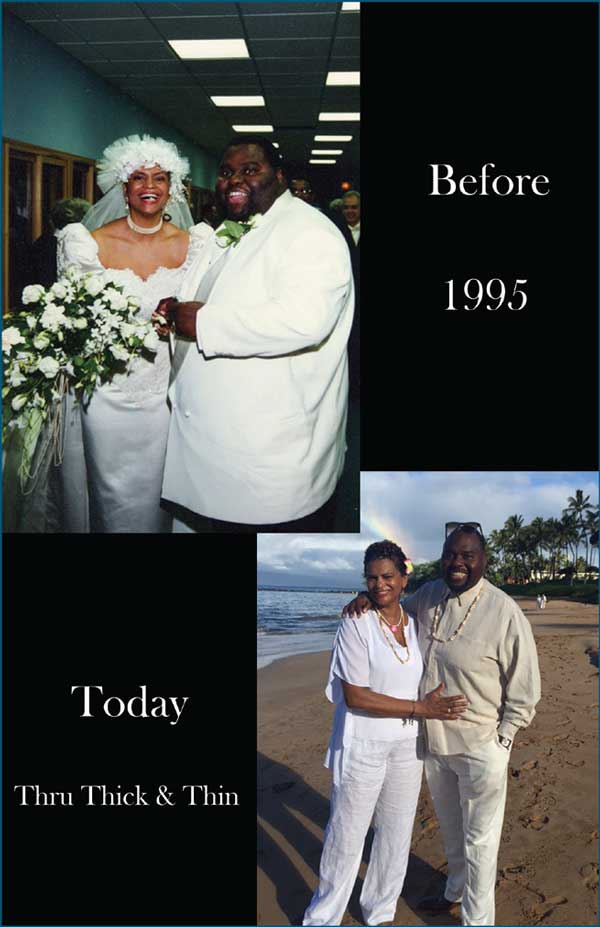Surgery for Obesity… A Family Journey!

by Adrian G. Dan, MD, FACS, FASMBS
Dr. Dan is Medical Director, Weight Management Institute at Summa Health in Akron, Ohio, and Associate Professor of Surgery at Northeastern Ohio Medical University (NEOMED) in Rootstown, Ohio.
Funding: No funding was provided.
Disclosures: The authors have no conflicts of interest relevant to the content of this article.
Bariatric Times. 2023;20(1):8–10.
The surgical gown and gloves come off as I walk away from the operating room table. Quickly, I glance at the avalanche of pages, texts, and email messages that have accumulated to generate a list of tasks that must be done before the next case begins. But before we even start the operative note, “we surgeons” always tend to the very first task at hand… talking to the family!

As I write the introduction to this column, on a brisk fall Sunday morning, the football analysts comment on the “home field advantage” imparted by the hometown supporters. The exact same is true for our patients, as loved ones cheer them on for the day of the surgery and the subsequent life-long journey that follows. While we prepare our patients with behavioral health optimization, little is done to prepare their support system. As we go about our clinics and our cases, we focus intently on the interaction and care provided directly to the patient. We often overlook the fears and concerns of those around them. Just as much as the patient, they are on this emotional journey and are impacted by the outcome of the operation.
There is no question that our patients rely on the support of those they hold dear. These are the folks we meet in the preoperative holding area who remind us to “take good care of my baby.” Their worry, agony, and prayers are constant as we go about our own daily routine. But their experience is far from a routine, representing a different perspective that we only sense when we (or a family member) become the patient. By the time we meet to discuss the details of the operation, their feelings of fear and vulnerability might leave them emotionally exhausted but hopefully relieved to see the surgeon. They are present in support because of the cherished bond they have with the patient and the consequences, for better or for worse, will also affect them indefinitely.
Patients might also be influenced by the opinions of their loved ones about the treatment of obesity.1 Those perceptions could themselves be prejudiced by the biases of the uninformed general public. We have all witnessed the parent who fears the worst, the spouse who is adamantly convinced that willpower is the answer to treat obesity, or even the person who worries that they might lose their sibling. Sometimes the opinions are strong, often advocating against the use of surgery and not persuaded by the evidence of its safety and efficacy. The intentions are genuine and due to fear for the wellbeing of their loved one. Involving family in the education about obesity treatment is a welcome opportunity to enlighten them. Family and friends who support the patient are as much a part of the care team as anyone. They are the hometown fans.
Studies have evaluated the so-called “halo effect” that can invoke health benefits in family members of patients who undergo bariatric surgery.2 The psychological and social effects on the individuals and the significant collateral impact on family members, however, has not been sufficiently studied. In her book Thru Thick and Thin: Facing Obesity Thru the Eyes of a Loved One, distinguished author Dana M. Rosser engages family and friends to face obesity through the prism of a loved one.3 This represents a reminder to the millions who love one of the 140 million Americans suffering from obesity, that they are not alone.4 As she recounts her own experiences on her journey with her husband and prominent surgeon, Dr. James “Butch” Rosser, Jr., she challenges readers to validate and address their heartfelt emotions and conflicted feelings about the surgical treatment of this disease.
References
- Sloan KS, Roberson DW, Neil JA. Family influences on patients’ decisions to undergo bariatric surgery. AORN J. 2020;111(2):180–186.
- Woodard GA, Encarnacion B, Peraza J, et al. Halo effect for bariatric surgery: collateral weight loss in patients’ family members. Arch Surg. 2011;146(10):1185–1190.
- Rosser D. Thru Thick and Thin: Facing Obesity Thru the Eyes of a Loved One. Xulon Press; 2015.
- Adult Obesity Facts. Centers for Disease Control and Prevention. https://www.cdc.gov/obesity/data/adult.html. Accessed December 19, 2022.
Guest Perspective
by Dana M. Rosser
Mrs. Rosser is a Bariatric Coach in Davenport, Florida. She is the author of Thru Thick and Thin: Facing Obesity Thru the Eyes of a Loved One, a book about her experience of living and loving a spouse who suffers with the disease of obesity.
As I peered around the corner for the thousandth time waiting for the surgeon to come out and inform me of how my husband’s (Dr. James “Butch” Rosser Jr.) gastric bypass surgery went, I wondered to myself, how did WE get here? Butch wasn’t fighting this battle with the disease of obesity by himself; I was in the proverbial ring battling right beside him. I loved him…we were a team. When insensitive strangers would stare, gawk, or laugh at him because of his weight, you better believe I was there to protect him and give them the death look, as if to say, “What are you looking at?” I was there pumping him up when his colleagues questioned his surgical abilities and pedigree to be a world class surgeon due to his weight. I saw the faces of those passengers on the plane when he walked down the aisle. Their faces said it all: “I hope this guy doesn’t sit next to me.” I saw and felt it all…and it hurt me to my core.

Yes, he was physically carrying the weight (460lbs), but as his loving spouse, it was hard to admit that this disease was weighing me down physically, mentally, and emotionally. In my heart of hearts, I knew something had to be done, but I wasn’t sure what that looked like. He was the love of my life, yet his mortality was on my mind 24/7, and that is no way to live. OUR family’s quality of life suffered because of this disease, yet we had nowhere to turn to offload the heaviness that obesity was causing.
Was there something more that I could have done to help him decide to make a less drastic choice than bariatric surgery? Should I have talked him out of it? What if he doesn’t make it through the surgery, will others blame me for not stopping him? How will I tell our five children? What if the surgery is successful, will it change Butch in ways that I’m not familiar with? The what if’s and the guilt I felt were relentless.
As I sat there crying for almost three hours straight in the waiting room, I wondered if anyone truly understood MY FEELINGS in all of this. Did they really care, or did I/we (family) matter? Honestly, how could they know what I was going through, when I couldn’t understand or express freely my own conflicting emotions. One minute I was overprotective, sad that the disease restricted his mobility, and then angry at him for eating unhealthy foods; and honestly, some of my feelings I was even too ashamed to admit. I truly needed help unpacking all of this. I wouldn’t dare express my angst about how his weight affected me and our family because, after all, he was the one that was physically suffering the most…right?
Since Butch had sleep apnea due to obesity, he would stop breathing in his sleep. I was terrified that he would pass away nightly. Because of that fear, I didn’t sleep well at all. I would always cat nap to make sure I was alert enough to shake him awake. My sleep deprivation and fear of losing him daily led me into a deep spiral of anxiety and depression. The effects of obesity were officially taking over our entire family.
Nearly 140 million people in the United States (US) alone suffer from the disease of obesity, with 29 million suffering from severe obesity.1
Understandably, the focus is on the patient; however, the family is an intricate part of the healing process and support system. Unfortunately, they are easily overlooked, and little to no resources/support are provided for them. They are left to deal with this delicate subject on their own. How is that possible?
Going forth, let’s make sure that every part of the area that bariatric surgery patients orbit is well informed and fully supported. Family members should be welcomed and encouraged to attend bariatric support group meetings and doctor’s appointments with the patient. The meetings should have a separate breakout session for family members only, so they can discuss their unique challenges/concerns openly and honestly without fear of judgment. Ask them what they need from the surgical staff to feel supported. Follow-up calls to the family members postoperatively are very important as well. There are a lot of intimidating changes happening very fast after bariatric surgery so emotional support is vital.
Butch’s bariatric surgery was a great success. He has lost over 160lbs and has kept it off since 2001. WE are still fighting the disease of obesity every day with a sensible diet and exercise. Surgery is not a magic pill; it’s a tool that helps families get back to the business of living out loud. WE NEED WE!! We are all in this together.
References
- Adult Obesity Facts. Centers for Disease Control and Prevention. https://www.cdc.gov/obesity/data/adult.html. Accessed December 19, 2022.
Category: Past Articles, Perspectives





